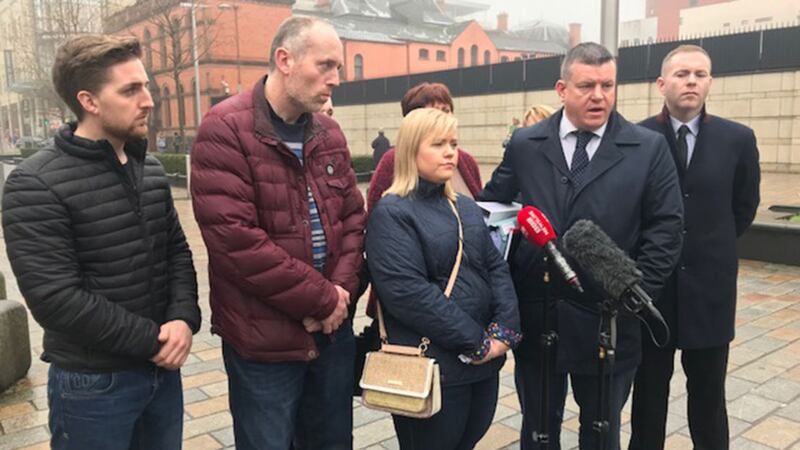As we approach the 20th anniversary of the Good Friday Agreement, it is becoming increasingly clear that the truth about most deaths in our great war will probably remain hidden forever.
Sadly, for the relatives of those murdered across the land from Kingsmill to Loughinisland, there is unlikely to be a time when someone will hand them a neatly parcelled package of facts and say: "Here, this describes and explains what happened to your loved ones."
Instead, they will be forced to watch an endless round of claim and counter-claim by all sides in what was Ireland's most sordid sectarian war. As the burden of truth-seeking is passed to a new generation, the past becomes just another item on a perpetual political agenda, an excuse for further sectarian division rather than a source of human comfort and closure.
If truth is the first casualty of war, its chances of survival in peace are not much better. Of course, there are obvious practical difficulties in establishing the truth about many events.
For example, as the release of state papers recently illustrated, how can we accurately establish who shot Derry man, Frank Hegarty or who, if anyone, betrayed the IRA men killed at Loughgall?
But there is an additional problem. Apart from the victims' relatives, it is not in anyone's interests to independently establish the truth about these and thousands of other deaths. There are three reasons for this: personal, political and the preservation of a fairy tale.
The first explanation is personal - many who were engaged in violence are still alive and it is in their interests for the truth to remain hidden. For example, the truth about the Ballymurphy massacres in 1971, might lead to criminal charges against at least some of the British soldiers involved.
Keeping the truth hidden prevents not just legal proceedings, but also conceals the culture of military aggression which led to the murders in the first place.
This personal-based explanation is rather optimistic, because it suggests that when the last former combatant dies, the full story of the troubles will somehow emerge. Sadly, this is unlikely, as indicated by the failure of the Boston College project to build even a limited archive about events here.
The second explanation is political. The British, the loyalists and the IRA all claim that their use of violence was for a noble political cause, but the details and motivation of much of that violence is often at odds with those claims.
For example, the IRA's claim to be fighting for a united Ireland had a certain logic, but the burning to death of 12 people at La Mon House 40 years ago next month hardly fits in with that claim. Better to forget about it.
Equally, the British government's involvement in supporting the Glenanne Gang's murder of innocent Catholics, north and south, does not quite tally with its claim of being an honest broker caught between two warring factions. You see, that's the problem with the truth - it tends to undermine the high moral ground for everyone.
The third reason for concealing the truth is the preservation of a fairy tale. The IRA to this day claims that their 30 year war was inevitable. It is an exceedingly convenient story for all sides because, like explaining an earthquake, it absolves humans from any responsibility.
But those of us old enough to have witnessed it, could see then that it was based on conscious decision-making, mainly by those who argued that the northern state should be destroyed by war rather than reformed by peace.
The only inevitable aspect of this war was that republicans would inevitably lose it and the truth about many of the deaths caused by republicans would certainly shatter the fairy tale. Those who argue that a war on Britain's terms was inevitable, display a poor understanding of both war and politics.
The British have a long history in covering up the truth of the violence, death and destruction caused by their Empire across the world and their loyalist allies have learned a lot from them in this regard in the past 200 years.
For republicans, however, this was the first time they engaged in widespread anti-civilian violence. While they might normally be expected to have a strong case for uncovering the truth, it is in their interests now too to let the past stay in the past.
So all three sides stand to lose credibility and support if the truth emerges about their actions. Which is why the brutal truth about our past will remain buried in the biggest mass grave of the troubles.









